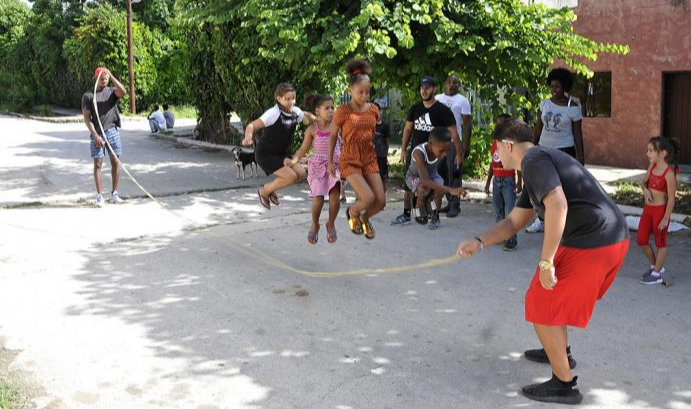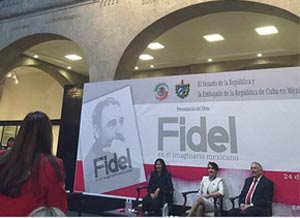Through her Facebook account, Yamila González Ferrer, Ph.D. in Legal Sciences and full professor at the Law School of the University of Havana, denied the false information circulating in the networks about the content of the new Family Code regarding the departure of children from the country, Granma newspaper published today.In this regard, the also Vice President of the National Union of Jurists of Cuba explained that it is up to both parents the decision of taking a minor out of the country, as a rule, except in cases where only one is the holder of parental responsibility.
“The new Code, already in force, recognizes that it is the mothers and fathers who legally represent their under-age children. Consent for acts derived from the exercise of parental responsibility is joint, except in cases of urgent necessity, in which the life or integrity of the child is compromised.”
The Code specifies that such joint consent must also be expressed when it involves decisions of transcendence and important potential or real repercussion in the life of those children. In Cuban legal practice, in the case of departure from the country, this means to express it in a notarial public deed, which is the one that is presented to the immigration authority, he added.
She indicated that in cases in which the mother or father, who does not have full custody and care, is prevented from giving such consent for objective reasons, or in those cases in which there is a history of neglect or abandonment towards their children, then is the guardian mother or father who may request the court to authorize him/her to make that decision alone (article 142).
“This is one of the novelties of the Code that was approved in a popular consultation. It will allow similar cases, so far without a solution, to be settled. For example, some mothers or fathers with a minor under their care have not been able to obtain travel authorization from the other parent, because they do not know where they are; sometimes the guardian is blackmailed, and they obtain consent only after paying a certain amount of money; and in some other cases, the other parent refuses to give the consent because they do not care about the child and simply want to harm the other person, ” she added.
Dr. González Ferrer clarified that the recognition of the progressive autonomy of children and adolescents; the priority of taking their opinion into account, of knowing what they think, according to their capacity and maturity; the need to treat them with respect and to explain to them, with the most appropriate methods, the processes they are going through and the decisions made regarding their lives, without impositions or violence, does not mean, as we have said so many times, doing what they want.
“Therefore, if a child cannot express his or her opinion about the family’s decision to leave the country because of his or her capacity and maturity, there will not be the slightest problem in taking him or her away, presenting the corresponding documentation, previously mentioned.
If a child expresses to his or her parents that he or she does not want to leave the country, even though it is the wish of said parents, it is the adults who have made the decision who must seek the solution to such a situation, lovingly explain the reasons, give him or her all the arguments and, if they consider it, seek alternatives to make him or she suffer as little as possible. It is a family decision. No authority is going to prevent the minor from leaving for that reason, she said.





